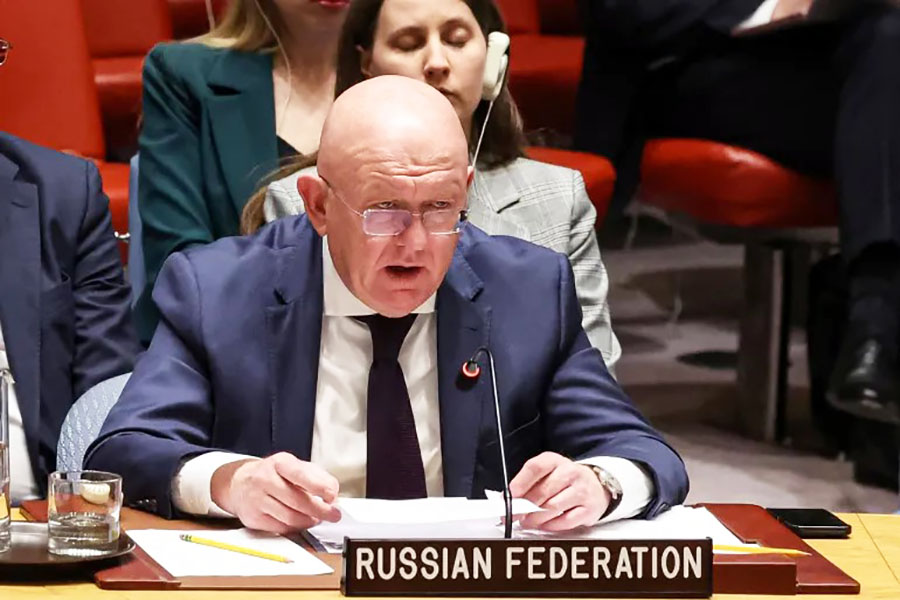
Russia’s 129th Veto Blocks International Efforts to End the Sudan War
Moatinoon
The Russian Federation’s decision to exercise its veto power against a proposed UN Security Council resolution aimed at protecting civilians and halting the conflict in Sudan, submitted by the United Kingdom and Sierra Leone, has sparked disappointment among international powers advocating for civilian protection. Meanwhile, the Sudanese government welcomed the move, seeing it as a reinforcement of national sovereignty. This marks the 129th instance of Moscow employing its veto since the establishment of the Security Council.
Key Features of the Proposed Resolution
The draft resolution, which Russia blocked, received support from all other 15 Security Council member states. It was unanimously backed except for Russias opposition. The key points of the proposal included:
Immediate cessation of hostilities between the warring parties and engagement in dialogue to agree on de-escalation measures and a nationwide ceasefire.
Respect for commitments made in Jeddah 2023 to protect civilians.
Prompt, safe, and unhindered delivery of humanitarian aid to affected citizens.
Protection of civilians from abuses by both warring factions.
Keeping the Adré border crossing between Chad and Darfur open.
Ending violations against children, including killings, recruitment, and sexual violence.
Calling on all parties to cease attacks on civilians, especially by the Rapid Support Forces (RSF).
Prohibition of using civilians as human shields.
Stopping external interventions that perpetuate the war.
Establishing a mechanism to monitor the implementation of these resolutions, with regular reporting to the Security Council.
Russia’s Justification
At the onset of the Security Council meeting, the French ambassador requested closed-door consultations among members to resolve disagreements over the draft resolution to ensure its adoption. Following no objections, the meeting was temporarily suspended for discussions.
After a brief recess, the Council reconvened for a vote on the resolution, jointly proposed by Sierra Leone and the United Kingdom. Despite receiving 14 votes in favor, the resolution was blocked due to Russia’s veto.
Dmitry Polyanskiy, Russia’s Deputy Ambassador to the UN, thanked the UK’s Foreign Secretary, serving as the Council’s President, for what he described as an “excellent display of British neo-colonialism.” He remarked that the UK was losing its global influence and accused the resolution of being steeped in post-colonial biases about Sudan’s future governance.
Polyanskiy emphasized that the Security Council’s role should be to assist the Sudanese parties in achieving a ceasefire through consistent and transparent methods, not impose unilateral perspectives on Sudan. He argued that Sudan’s government alone bears the responsibility for civilian protection, border security, and decisions on foreign troop invitations, accusing the resolution of undermining Sudan’s sovereignty.
The British Response
After the vote, UK Foreign Secretary David Lammy lamented the suffering endured by Sudanese civilians during the war, describing it as an “indelible scar on our collective conscience.” He outlined the atrocities witnessed, including ethnic-driven violence, mass rapes, child abductions, recruitment of child soldiers, attacks on aid workers, and destruction of essential facilities like homes, schools, and hospitals.
Lammy condemned Russia’s veto, accusing it of emboldening warring factions and obstructing international efforts to protect civilians and provide aid. He described the veto as "shameful" and “a stark demonstration of Russia’s true colors,” linking it to Russia’s broader policies in Africa and its ongoing war in Ukraine.
Veto Usage Statistics
According to UN records, Russia (and its predecessor, the Soviet Union) has exercised its veto power 129 times, most recently on November 18, 2024, regarding Sudan. The United States follows with 85 vetoes, the latest being on April 18, 2024. The UK and France have not used their vetoes since 1989, having done so 28 and 16 times, respectively. China has used its veto 18 times.
#Sudan_war

